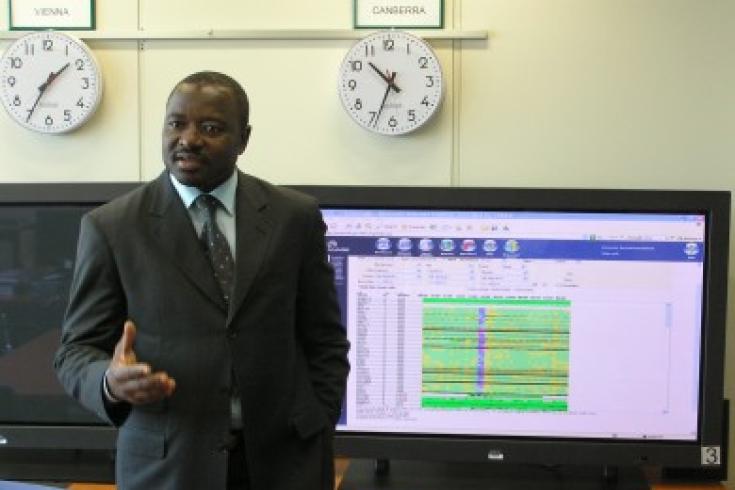CTBT ratification in the Middle East, Morocco demands at UN event
The seminar was convened by the New York based EastWest Institute in coordination with France and Morocco, and was chaired by W. Pal Sidhu, the Vice President of Programs at the EastWest Institute [Event Report on EWI Website]. Entitled Promoting the CTBT: Politics, Science and Capacity Development, the workshop brought together diplomats, policymakers and experts from the non-governmental community.

Mohammed Loulichki, ambassador of Morocco to the United Nations in New York.
A well functioning verification regime
“This is a very well functioning, already operational system,” Verwaerde noted, suggesting that among the issues that should be further explored are the capacity improvement of the seismic auxiliary stations, the strengthening of the cooperation with the scientific community and the further use of the technologies for civil protection.
“The tests conducted by North Korea in 2006 and 2009 put the system to the test and showed that it worked,” said Lassina Zerbo, the director of the International Data Centre of the Preparatory Commission for the Comprehensive Nuclear-Test-Ban Treaty Organization (CTBTO), noting that the organization was fully able to meet the Treaty’s timelines in terms of information provisions. While acknowledging that there can sometimes be a challenge to provide data in provisional operations, Zerbo concluded that “we are moving slowly from provisional technical operation to full operation.”

Lassina Zerbo, the director of the CTBTO's International Data Centre (IDC).
Progress can be achieved through different actions
“Ten thousand scientists are behind this system,” said Tibor Tóth, the Executive Secretary of the CTBTO. Tóth underlined the need to make sure that all Member States can benefit from the Treaty’s monitoring data, and, in this context, emphasized the key role of capacity development. “We are reaching out to countries, international organizations, and educations institutions to forge partnerships at all levels,” Tóth said.
“The norm is so clearly in front of everybody, what is needed is action,” concluded Tóth.

Florence Mangin, ambassador of France to the United Nations in Vienna.
14 May 2010
